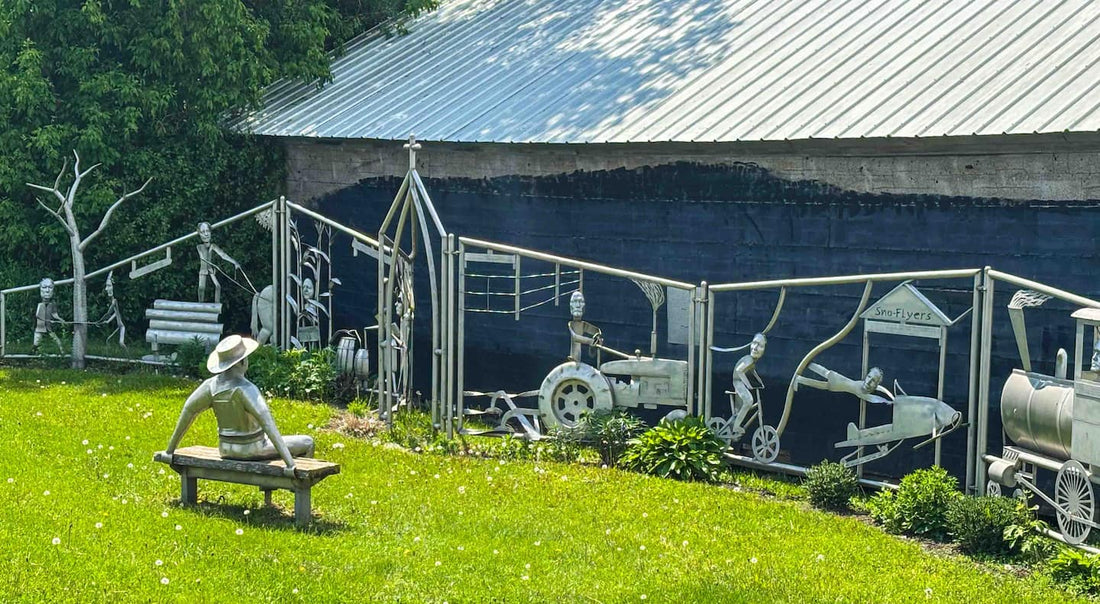
Part 4: 300+ Miles of Field Testing
Share
300+ Miles of Field Testing

Country bridge: A quiet country bridge on the Lake Wobegon Bike Trail in Holdingford, Minnesota.
I started taking only the adjustable seat on my rides. When I felt soreness from the initial width, I would pull over, take the seat and post off the bike, and do the several-minute process to set a new width. When I got back on, the pain was not completely gone, but it was significantly reduced.
I am sure a small part of that relief came from the short break. Experience tells me, though, that a brief pause is not enough to explain the difference I felt after changing width. The pattern was consistent: adjust the width, shift the pressure, feel better, keep riding.

Bike at countryside bench: A bike rests at a scenic bench along the Lake Wobegon Trail in Holdingford, Minnesota.
Over the next several weeks we logged more than 300 miles on the seat. I periodically took it apart to inspect the components. The seat has a multi-layer construction that let me separate the cushioned seat halves from the middle layer and the bottom shells. I was able to inspect every component. After 300-plus miles, I did not see any wear on the structural parts.

Metal sculpture on the Lake Wobegon Trail in Holdingford, Minnesota.
What I took from this round of testing
- Changing the seat width mid-ride shifts pressure to new contact points and reduces hot spots.
- A firmer, supportive seat is more comfortable over time than a soft foam, at least for me.
- The structure handled real miles without visible wear.
- To make on-ride comfort practical for more riders, the adjustment needs to be quick and tool-free—which is exactly what we set out to build with our adjustable-width bike seat.